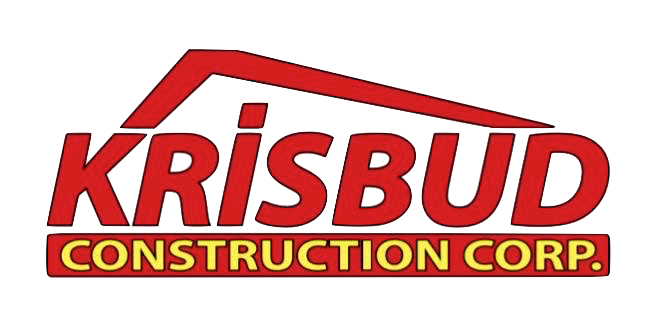Chicago Neighborhoods with the Most Masonry Violations (And Why)
Chicago Neighborhoods and Masonry Code Violations
Chicago's brick buildings are iconic—but they also come with responsibilities. From aging facades to weather-worn parapet walls, Chicago masonry code violations are a common headache for property owners across the city. Some neighborhoods, however, see more than their fair share.
In this guide, we break down what constitutes a masonry violation, which Chicago neighborhoods see the most citations, and—most importantly—how you can stay ahead of fines and structural damage.
What Constitutes a Masonry Code Violation in Chicago?
The Chicago Department of Buildings enforces strict codes to protect the public from unsafe structures.
Common masonry-related violations include:
Cracked or deteriorating mortar joints
Spalling bricks or surface delamination
Leaning chimneys or missing chimney caps
Bulging or shifting facades
Parapet wall deterioration
Unpermitted tuckpointing or facade work
Unsafe overhead conditions requiring canopy installation
These issues can compromise not only structural integrity, but also pedestrian safety and neighboring buildings.
Top Chicago Neighborhoods with Frequent Masonry Violations
While masonry violations can happen anywhere in Chicago, certain neighborhoods experience higher rates due to a combination of aging infrastructure, environmental exposure, and inconsistent maintenance practices. Based on publicly reported trends, contractor experience, and city enforcement patterns, the following areas often see elevated violation activity:
1. West Town
A mix of 19th and early 20th-century buildings, many of which haven’t undergone consistent maintenance. Deteriorating parapet walls, failing mortar joints, and unsafe facade conditions are common.
2. Humboldt Park
Economic constraints and a high percentage of older multi-unit buildings often lead to deferred maintenance. Violations frequently involve brick cracking, chimney deterioration, and tuckpointing failure.
3. Pilsen
This neighborhood’s historic buildings are beautiful—but vulnerable. Many have suffered from years of water exposure and require extensive masonry restoration and violation compliance work.
4. Albany Park
A diverse mix of apartment buildings, courtyard complexes, and flats—many over 80 years old. Cracked brickwork and structural damage from moisture intrusion are frequent issues.
5. Uptown
Aging brick and limestone buildings, often with ornate facades, face challenges from Chicago's climate and a long backlog of maintenance needs.
6. Logan Square
While trendy today, many Logan Square homes are 100+ years old and need regular tuckpointing, chimney repair, and foundation care to avoid citations.
7. South Shore
Close to the lake and exposed to high moisture levels, South Shore buildings often suffer from accelerated masonry deterioration, especially around rooflines and facades.
What About Other Chicago Neighborhoods?
It’s important to note: masonry violations don’t discriminate by ZIP code.
Even well-maintained areas like Lincoln Park, Edgewater, and Lakeview experience issues with:
Parapet wall deterioration
Aging chimneys and cracked crowns
Weakened mortar joints from decades of weather exposure
The key difference? These neighborhoods often have better-funded HOAs, professional property management companies, or proactive owners who handle preventive masonry maintenance before it becomes a code issue. So while violations still occur, they’re usually addressed more quickly—and less likely to be visible on city enforcement maps or contractor emergency calls.
Bottom line: Every Chicago building, no matter the neighborhood, needs regular inspections, timely repairs, and expert maintenance to avoid masonry violations and long-term damage.
Why These Areas See More Violations
Certain common threads link the most frequently cited areas:
Older masonry construction that's more vulnerable to Chicago’s harsh winters
Deferred maintenance due to absentee ownership or limited funds
Lack of routine tuckpointing, chimney cap installation, or façade sealing
Proximity to Lake Michigan or open exposure to wind and rain
Buildings with historic status requiring special permit approvals, often delaying work
What Happens If You Get a Violation
Ignoring a violation notice from the city is a recipe for legal and financial trouble.
You could face:
Daily fines
Stop work orders
Emergency scaffolding or canopy requirements
Lien placements and resale delays
Escalated costs as damage worsens
The solution? Work with a licensed masonry contractor in Chicago who understands the permit process, codes, and what the city inspectors are looking for.
How to Avoid Masonry Violations in the First Place
Here’s what responsible property owners and building managers do:
Schedule annual or bi-annual masonry inspections
Keep gutters and rooflines clear to reduce water damage
Address small cracks, spalling, and chimney issues quickly
Pull proper permits for any façade or parapet work
Partner with a contractor that documents repairs and manages compliance
How Krisbud Construction Helps You Stay Violation-Free
At Krisbud Construction, we’ve corrected hundreds of masonry code violations across Chicago’s neighborhoods. Our team of experienced Chicago masons handles:
Violation notices and DOB paperwork
Full-service tuckpointing, chimney repair, and parapet wall reconstruction
Proper permit filing and jobsite compliance
Pre-listing or pre-inspection evaluations for buyers and sellers
Free consultations with no-pressure guidance
We know the Chicago building code inside and out—and we’ll make sure your project passes inspection the first time.
Ready to Prevent or Fix a Violation? Let’s Talk.
Don’t let a cracked facade or neglected parapet become your next citation. We’ll walk your site, review your violation, and create a plan that protects your property—both structurally and legally.
Contact Krisbud Construction Masonry & Tuckpointing for a free inspection and personalized masonry restoration plan.

